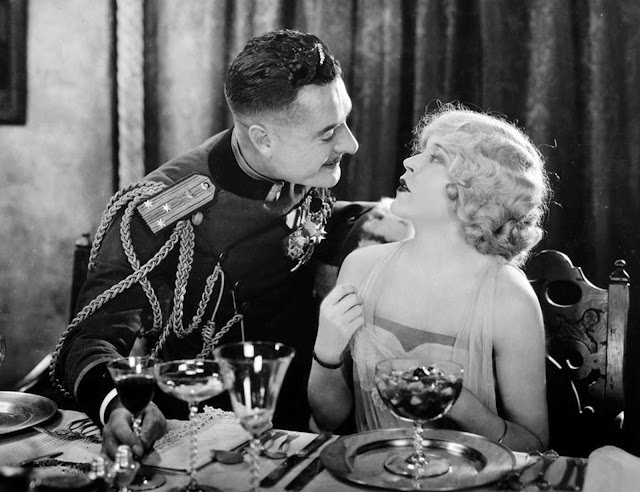The Merry Widow (1925)
Erich von Stroheim's "The Merry Widow"
When Erich von Stroheim signed a three-picture deal with Goldwyn Company in 1922, it was on the condition that he made an adaptation of the famous German operetta, "The Merry Widow."
The story centers on a prince who falls in love with a peasant dancer. After being convinced out of the marriage due to her economic standing, she winds up marrying rich Barron. After the Barron's death, the Prince must win her back to keep her large wealth from leaving the country.
Stroheim utilizes his typical decadence to tell a story of love, sex, and wealth. These three things seem interchangeable in the film, as class dynamics overpower emotionality itself. Stroheim's brilliant camera play is top-notch as always. The limited number of intertitles allows the story to breathe more on its own. It also allows Stroheim to tell the story visually and let the images speak for themselves.
The film ended up being Stroheim's highest-grossing movie. The story was so popular, that it was eventually remade with sound in 1934. The 1934 version was directed by Ernst Lubitsch, who was a great admirer of Stroheim. The 1925 version of "The Merry Widow," although soundless, still is able to tell an engaging story about how the sexual indulgences of the wealthy in inseparable from their indulgences in power.




Comments
Post a Comment